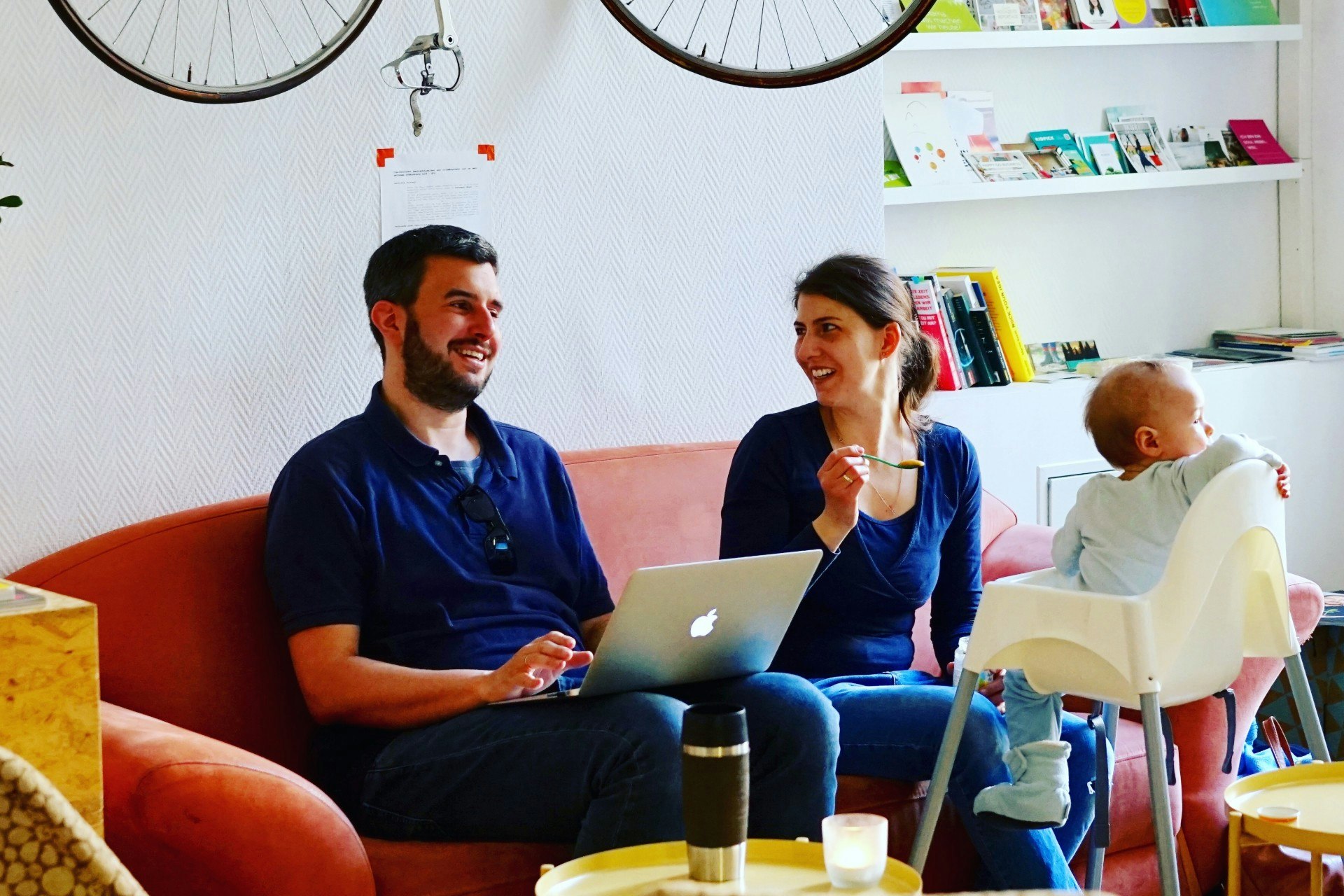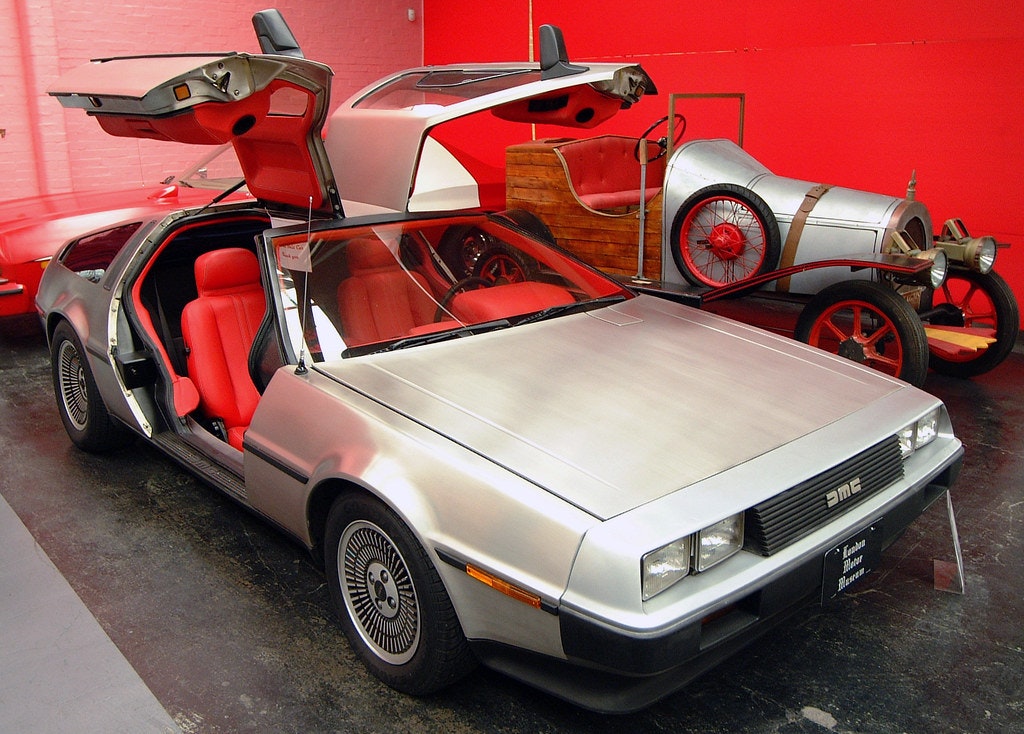WeWork is more interested in sales than building a community. It’s increasingly for big corporates. And it shouldn't be described as providing “coworking” spaces.
These are the words of Tobias Kremkau, the manager of St. Oberholz in Berlin, one of the oldest coworking spaces which is now expanding all over Germany.
They come as WeWork’s parent company this week filed paperwork to go public in the US, just months after raising money from Japan’s Softbank at a $47bn post-money valuation.
WeWork describes itself as providing more than "beautiful, shared office spaces" but a "community" and "a place you join as an individual, 'me', but where you become part of a greater 'we'."
Kremkau knows more about coworking spaces than pretty much anybody else in Europe. Travelling from Barcelona to Stockholm over two months with his wife in 2015, they worked from a different coworking space every day.
Loving all things coworking he also cofounded the German Coworking Federation which helps people to set up new spaces and hosts the “COWORK” conference every year.
Sifted met up with Tobias in Berlin over an iced coffee at St. Oberholz to talk about what makes a good coworking space, why startups should start out as co-workers and why WeWork is not a threat.
Coworking is a buzzword these days. How do you define it?
There is no single definition for coworking, but the early coworking scene established five coworking values: collaboration, openness, sustainability, accessibility and community. Not everyone adheres to them and everyone interprets them differently but most people think of coworking as a culture of togetherness.
In 2015, you and your wife travelled through Europe from Barcelona to Stockholm for two months, working in a different coworking space every day. What did you learn?
A coworking space is a reflection of the neighbourhood it is located in. For instance, in Berlin, all the coworking spaces with childcare are in Prenzlauer Berg, the area with the highest childbirth rate in Germany. When touring coworking spaces in Europe, I found that, as different as they all were, they had at some point all pursued an idea of openness. Open access, open knowledge, open wifi… I would say that all coworking spaces are the same in their commitment to openness as the most important value.
St. Oberholz is one of the oldest coworking spaces in the world. How has it evolved over time?
St. Oberholz started out as a café with free wifi one month before the term “coworking” was coined by Brad Neuberg in San Francisco in August 2005. Back then we did not know that the people working in our café were “coworking”, today we live and breathe all five coworking values and have established a distinct coworking culture which members can feel in everything we do. For instance, accessibility at St. Oberholz means that members can come and work here 24/7 for an affordable price. The tables in our space are big and long instead of separated, encouraging collaboration. Openness does not only express itself in our airy architecture but also in an open mind as to how the community shapes the space. We have a wall at St. Oberholz which members have scribbled on over the years and instead of telling them to stop, we now protect it as a piece of our history.
Today, corporate coworking providers such as WeWork, Mindspace and Rent24 have opened up all over Berlin (and Europe). Do you fear their competition?
We do not see them as competition because what they do is very different from what we do. When they arrived in Berlin we did not lose any of our members to them. That is because these corporate providers define coworking as a service office product and not as a culture. Many of these real estate solutions look like traditional offices and they also service traditional companies which are interested in a change of scenery or are experimenting with growth. Calling these business solutions “coworking” is a marketing stunt and has nothing to do with the collaborative freelancer culture coworking originated from.
What does WeWork have that you do not and vice versa?
WeWork definitely has more space. We cannot take in 300 Volkswagen employees like WeWork can. However, when people are interested in working differently and bringing about a change in culture, we can offer them 15 years of experience. Also, you can feel that although we have businesses as members, we care for the individual people. You spot this personal touch in the little things: when you consider a membership at St. Oberholz you are given a tour by a community manager, at WeWork you are shown around by a sales representative.
Why do more and more traditional companies put ping pong tables and colourful sofas in their offices to look like startups or coworking spaces?
They do so to attract young talent. Young people nowadays have grown up with the flexibility of digital independence, their values differ from those of traditional employers. Talent these days can decide to work for Apple, Deutsche Bahn, Google or Allianz insurance. The Bahn and Allianz have to be very cool to compete with Apple and Google. An HR employee of a big German company tells me that when she sends out job offers, she still gets 70% withdrawals because of workplace culture. The war of talent is the main driver for employers to change their culture and office architecture these days.
How do young companies benefit from starting out in a coworking space?
It is the best decision they can make. First, they remain flexible because they do not have to buy any desks and chairs or buy a 2-year internet contract. Secondly, they meet other like-minded people to discuss their ideas and have access to a diverse talent pool. Startups like SoundCloud and brands4friends started out at St. Oberholz and told us that their first employees were other members they met in the space. And lastly, we make better coffee here than most people make in their kitchens at home. It sounds trivial but coworking was preceded by coffee-house culture, and we take our coffee very seriously.
When does it make sense for startups to get their own space?
A coworking space offers all the services needed for a company to get started. Once the startup grows and especially when it is big enough to form its own identity it might make sense to move out and start building its own community.
Which is your favourite coworking space in Europe?
All of them were cool but I liked LikeBirds in Ghent, Belgium, best. It was located in the canteen of a former gas factory, a very light room with exceptionally friendly staff and regular big members lunches. Unfortunately, the space was demolished two years ago and LikeBirds moved to a new factory building which looks completely different. When I visited this January, I felt just as welcome as in the old space. This is what I mean by culture, it is made by people who love and value true coworking and exists independent from location.
Will coworking replace the office someday soon?
The office as such will not die but it will be used differently. We will not have cellular offices and empty, useless hallways but large spaces where people can come and go. There will still be meeting or workshop rooms for larger groups to collaborate but no room will be dedicated to a specific use, it will be available for whatever is needed. We might also think about how to bring people together more naturally. These could be small things such as putting the printer next to the coffee machine. Overall, work will be organised differently.
What are your plans with the German Coworking Association and the future of coworking?
The association spreads coworking as a culture. Once a year we organise the conference “Cowork” in Germany and every three months we hold workshops in different German cities for people who are interested in opening a coworking space. For the future of coworking my hope is that everyone can truly work with autonomy from wherever and whenever they want. If work changes fundamentally and “Neue Arbeit” as Frithjof Bergmann has defined it is implemented widely, we will not need coworking spaces anymore. Now, we are the “different place”, the colourful island in the grey sea. But if my wish comes true, my job will not be needed anymore.


